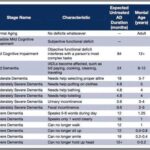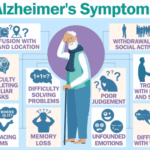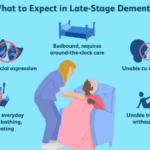Tag: Alzheimers Disease
Articles about Alzheimer’s Disease often in the terminal stage including tips for caregivers.
Articles about Alzheimer’s Disease often in the terminal stage including tips for caregivers.

As a nurse who has cared for many terminally ill individuals with Alzheimer's disease over the years, I understand the importance of accurately assessing their functional decline using the Functional Assessment Staging Tool (FAST). The FAST scale provides valuable information about the progression of Alzheimer's disease and helps guide appropriate care planning for patients and their families. In this guide, I will walk you through the process of assessing patients on the FAST scale, starting from stage 1 and discussing when to stop reading the scale for determination. I will also provide three examples of patients at various stages of the FAST scale.

Navigating hospice eligibility for non-Alzheimer's dementia patients demands a personalized approach. Unlike Alzheimer's, there's no definitive scale, necessitating assessments of functional decline, mobility, communication, incontinence, weight loss, overall condition, and comorbidities. Effective documentation, clinical judgment, and compassionate care are crucial for supporting these patients and families.

Discover essential guidance for caring for a loved one with Alzheimer's disease, from early symptoms to end-of-life care. Learn about communication strategies, safety measures, and self-care tips for caregivers. This comprehensive guide offers support and practical advice for navigating the challenges of Alzheimer's caregiving.

As a hospice registered nurse, I have encountered numerous heartwarming and challenging experiences throughout my career. One of the most memorable encounters was with a dementia patient, Miss Norma Jean Smith, who affectionately called me "Jack." This endearing nickname, born out of her unique perception, became a symbol of the special bond we shared. In the following account, I will share the poignant journey of building trust, providing compassionate care, and embracing the unexpected moments of joy and sorrow in the life of Miss Norma. This story is a testament to the profound impact of person-centered care and the invaluable lessons learned from the patients we are privileged to serve.

Explore the ethical dilemma of physical therapy for terminally ill dementia patients. This article examines the potential harm of aggressive interventions, highlighting the importance of comfort-focused care. Learn why hospice professionals often advocate for gentler approaches in end-of-life dementia care.